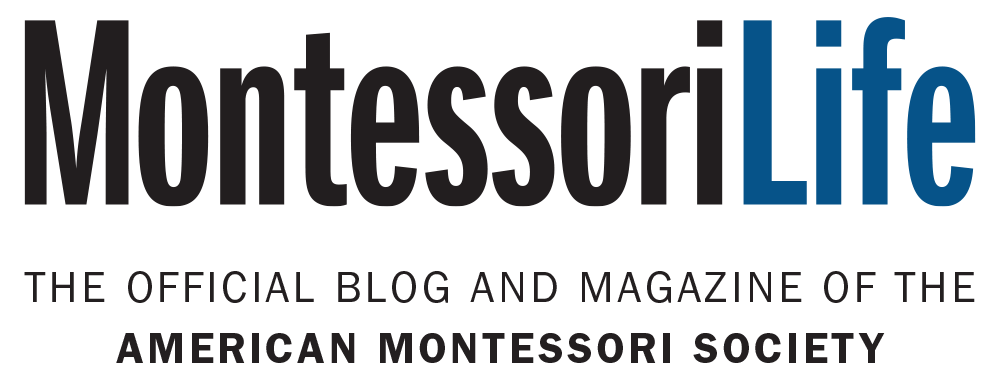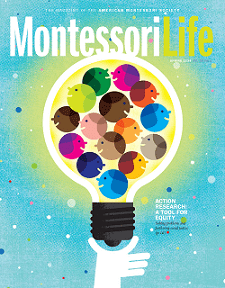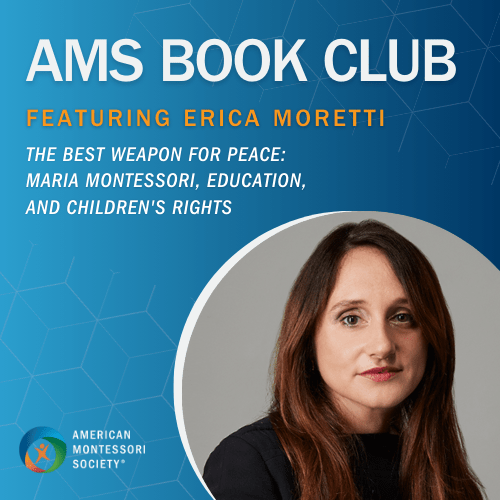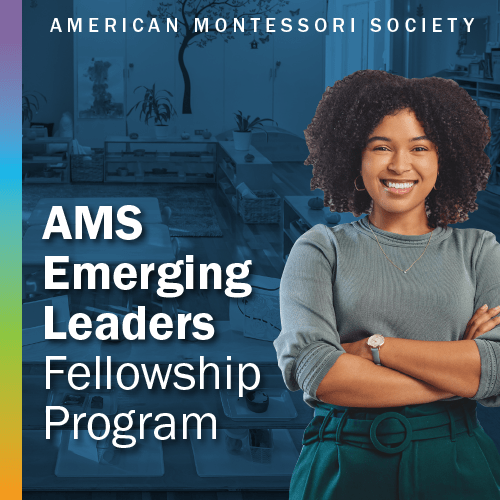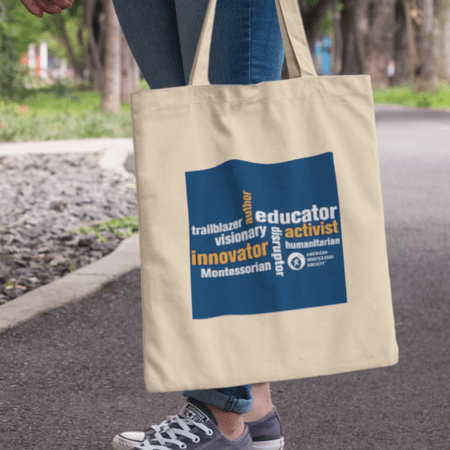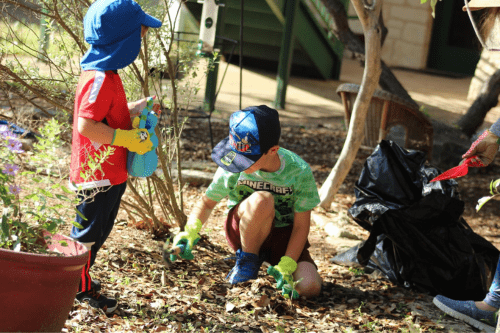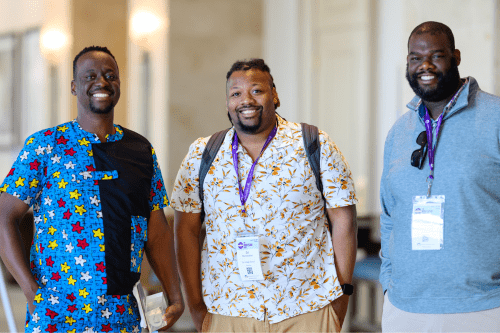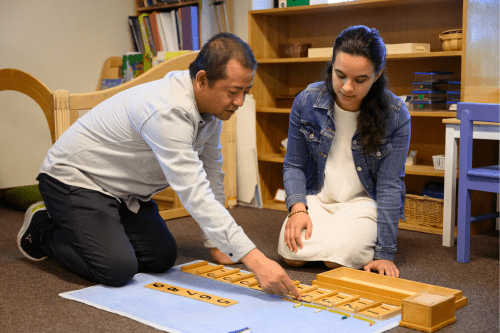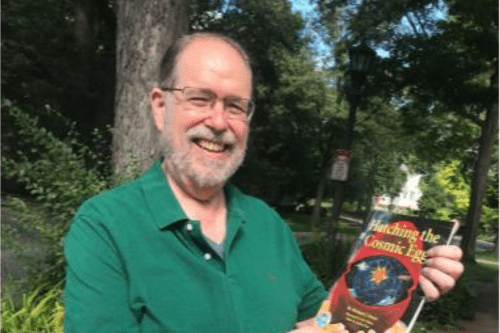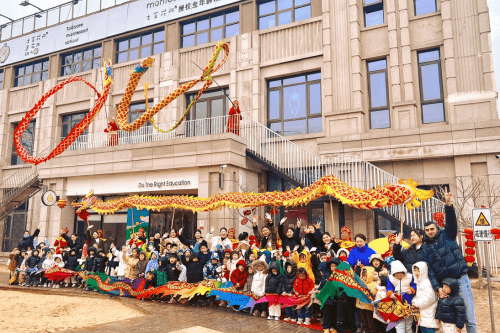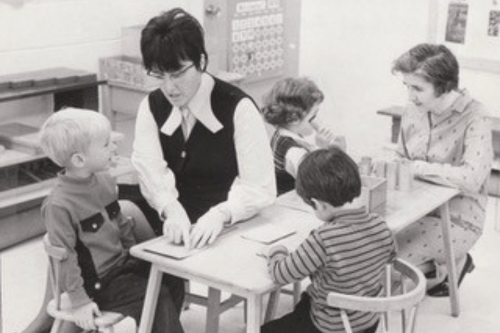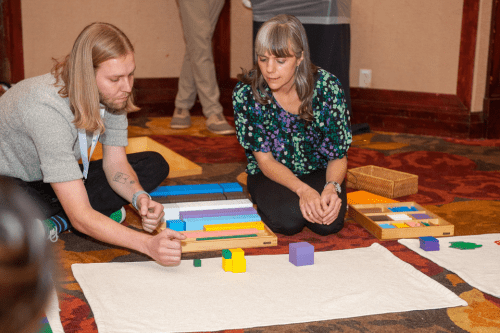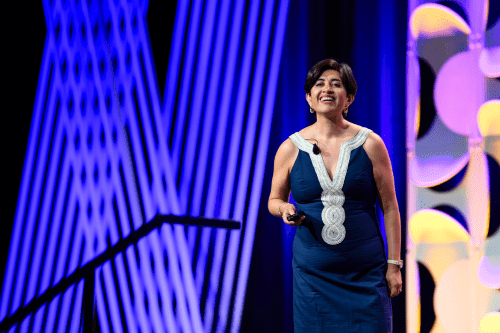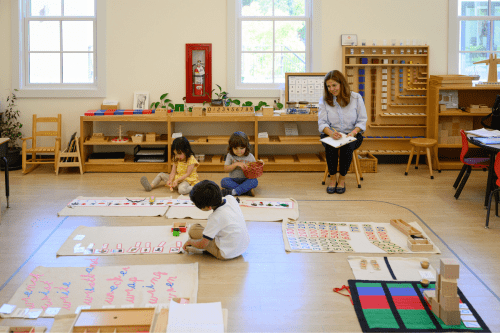Cambridge Montessori School Develops Community Lunch Program
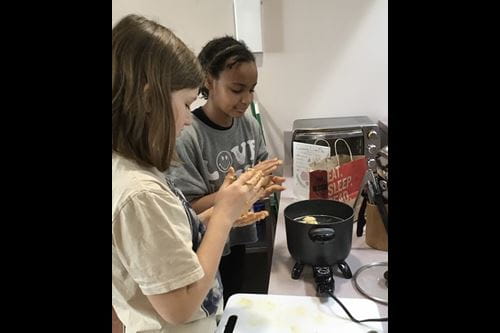
Practical Life activities help children learn everyday skills. For the second plane child, these experiences should introduce and provide support for students’ blossoming independence. Elementary-aged children thrive when given the opportunity to engage in Practical Life activities that allow them to connect with others and the world around them.
AMS-accredited member school, Cambridge Montessori School (CMS), in Cambridge, MA, has developed an innovative example of Montessori Practical Life in action, the Upper Elementary Community Lunch Program.
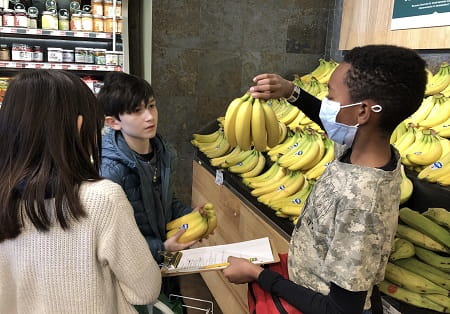
Community Lunch began with a focus on community building within the Elementary student and parent community and then quickly expanded to include other school members as small groups of students from other levels and staff members were invited to share in these communal experiences. The Upper Elementary teachers note, “This cross-level sharing has been embraced by many and we often get requests for invitations to our next lunch.”
Community Lunch provides CMS’s Upper Elementary students with the Practical Life experience of planning and preparing to host a meal for invited guests.
Every two weeks, groups of three or four students serve as Community Lunch Hosts. During the work cycle, they engage in planning and preparation for the community lunch. They begin by developing a menu, ensuring it includes fruits, vegetables, proteins, and grains. They choose one ingredient from the meal to research. They also reach out to adult helpers to request their assistance the following week with shopping and cooking.
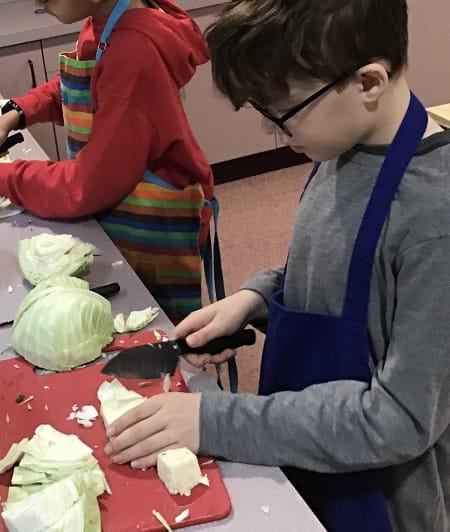
The adult helpers are invited to join the meal, as are other school community members on a rotating basis. Students write and deliver personal invitations to other students, making it a highly anticipated event.
Following the meal, the Community Lunch Hosts stay behind (“and sometimes [even] miss recess,” according to CMS Upper Elementary students) to help wash the dishes and clean the environment.
Community Lunch is an engaging and enriching experience for all participants. CMS Upper Elementary teachers note, “The students who host the lunch get meaningful practice in math, nutrition, non-fiction reading, writing, presentation [skills], cooking, map reading, and executive function skills. The students who eat the lunch practice social skills, learn about new foods, and strengthen their community.”
CMS Upper Elementary students relish the opportunity to bring the school community together, recognizing the immense benefits of this unique experience. One student mentioned, “Community Lunch is an excellent learning experience for us students. We learn about unit prices and cooking and you wouldn’t believe how much teamwork can come in handy when it turns out someone has been holding the map upside down! Community Lunch is equal parts fun and educational. It can be frustrating when the berries spill or the baguettes are overpriced, but the outcome is always great.”
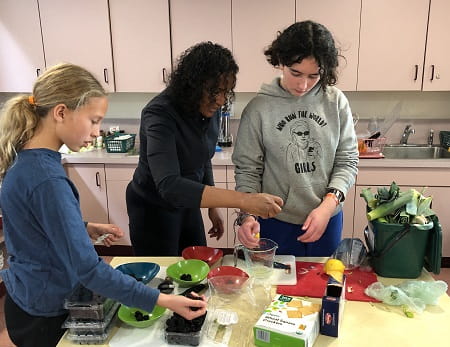
The structure of the Community Lunch Program has been strategically designed to consider the needs of the second plane child. It provides the opportunity for students to collaborate with their peers, to use their reasoning mind, and to do big work. CMS Upper Elementary teachers highlight the fact that “...one student cannot do it alone. Learning to work as a team, utilizing everyone’s strengths, and supporting their weaknesses is critical to the success of each Community Lunch.”
The program also introduces and provides support for experiences that students will need in their lives as adults, as well, including “nutritional planning and healthy eating, cooking, budgeting and financial management, grocery shopping, and respectfully requesting help from, and working with, adult volunteers.”
According to CMS Upper Elementary staff, “The most important benefit is the empowerment of the students and the sense of ownership that they have about the program in general and their own lunch in particular.” In their opinion, Community Lunch provides meaningful cross-curricular work, small group collaboration, and practical life experiences that “are all at the foundation of a Montessori Elementary education.”
For those interested in starting their own Community Lunch Program, CMS offers a comprehensive album including everything one needs to know to develop and implement Community Lunch in their online web store as a PDF download.
Photos provided by Cambridge Montessori School.
About the Author

|
Heather White, EdS, is a Montessori coach and consultant, content creator, and educator for adult learners, as well as a moderator and manager for the Montessori at Home (0 – 3 years) Facebook group. Formerly, she was a Montessori teacher, in-home caregiver, Lower Elementary coordinator, and associate head of school. She also has experience as a school psychologist intern. She is AMS-credentialed (Early Childhood, Elementary I) and is a Nationally Certified School Psychologist (NCSP). Contact her at hpratt@stetson.edu. |
The opinions expressed in Montessori Life are those of the authors and do not necessarily represent the position of AMS.

